Hyundai IONIQ 6 vs Dacia Bigster – Performance, range & efficiency compared
Both models have their strengths – but which one suits you more?
Compare performance, efficiency, price and space directly: Hyundai IONIQ 6 or Dacia Bigster?
Costs and Efficiency:
Looking at overall running costs, both models reveal some interesting differences in everyday economy.
Dacia Bigster has a convincingly advantage in terms of price – it starts at 20600 £, while the Hyundai IONIQ 6 costs 37600 £. That’s a price difference of around 17066 £.
Engine and Performance:
Power, torque and acceleration say a lot about how a car feels on the road. This is where you see which model delivers more driving dynamics.
When it comes to engine power, the Hyundai IONIQ 6 has a clearly edge – offering 650 HP compared to 155 HP. That’s roughly 495 HP more horsepower.
In acceleration from 0 to 100 km/h, the Hyundai IONIQ 6 is convincingly quicker – completing the sprint in 3.20 s, while the Dacia Bigster takes 9.70 s. That’s about 6.50 s faster.
In terms of top speed, the Hyundai IONIQ 6 performs evident better – reaching 257 km/h, while the Dacia Bigster tops out at 180 km/h. The difference is around 77 km/h.
There’s also a difference in torque: Hyundai IONIQ 6 pulls decisively stronger with 770 Nm compared to 230 Nm. That’s about 540 Nm difference.
Space and Everyday Use:
Cabin size, boot volume and payload all play a role in everyday practicality. Here, comfort and flexibility make the difference.
Both vehicles offer seating for 5 people.
In curb weight, Dacia Bigster is distinct lighter – 1425 kg compared to 1850 kg. The difference is around 425 kg.
In terms of boot space, the Dacia Bigster offers evident more room – 667 L compared to 401 L. That’s a difference of about 266 L.
When it comes to payload, Dacia Bigster slight takes the win – 467 kg compared to 430 kg. That’s a difference of about 37 kg.
Who comes out on top?
Overall, the Hyundai IONIQ 6 shows itself to be dominates this comparison and secures the title of DriveDuel Champion.
It convinces with the more balanced overall package and proves to be the more versatile choice for everyday use.
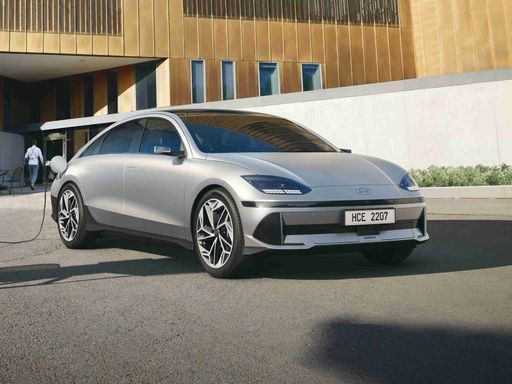
Hyundai IONIQ 6
Hyundai IONIQ 6
The Hyundai IONIQ 6 merges futuristic design with eco-friendly technology, offering a glimpse into the future of electric mobility. Its sleek silhouette and aerodynamic profile are sure to capture attention on the road, while the interior provides a seamless blend of comfort and cutting-edge digital features. With a focus on efficiency and sustainability, this model represents a significant step forward in the evolution of electric vehicles.
details @ hyundai.news
@ hyundai.news
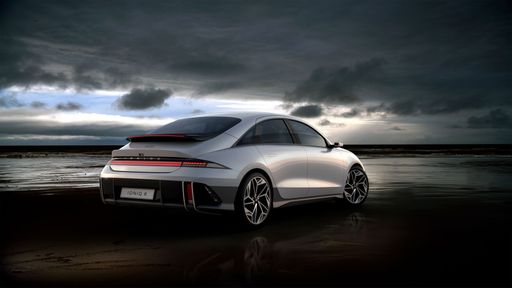 @ hyundai.news
@ hyundai.news
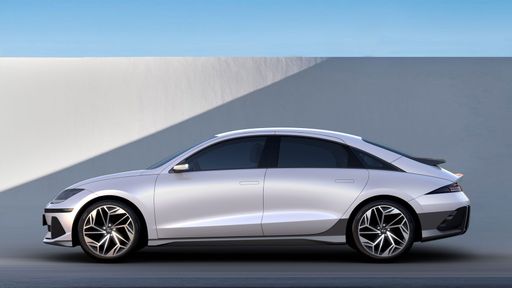 @ hyundai.news
@ hyundai.news
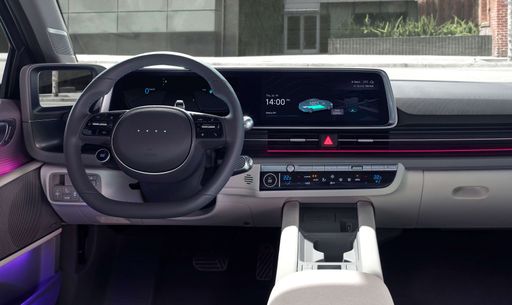 @ hyundai.news
@ hyundai.news
Dacia Bigster
The Bigster is poised to redefine the SUV segment with its bold design and spacious interior, catering to the needs of both families and adventure seekers alike. Emphasizing sustainability and practicality, this model reflects a modern approach to automotive engineering, making it a compelling choice for environmentally conscious drivers. With its striking presence on the road, the Bigster not only captures attention but also embodies a new era of versatile mobility.
details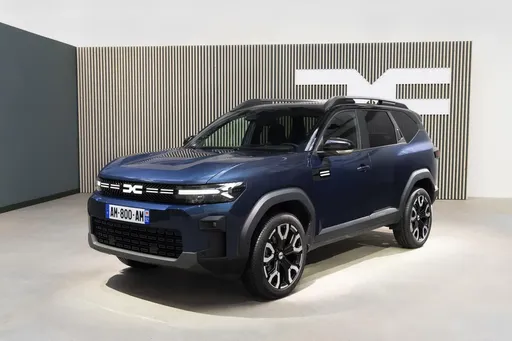 @ media.renault.at
@ media.renault.at
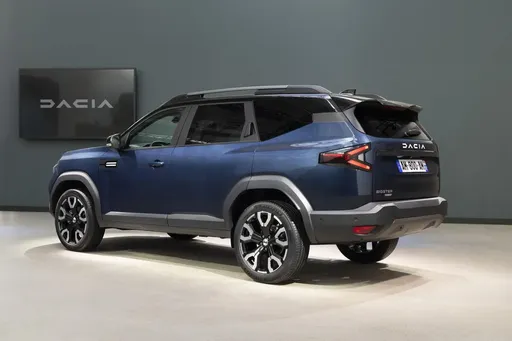 @ media.renault.at
@ media.renault.at
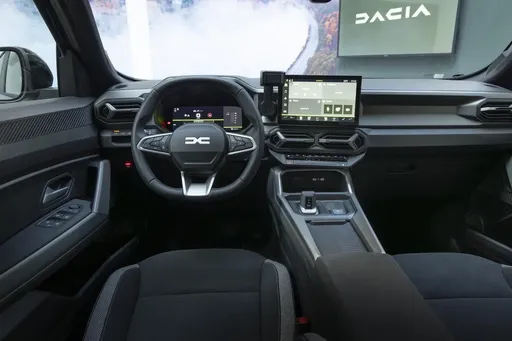 @ media.renault.at
@ media.renault.at
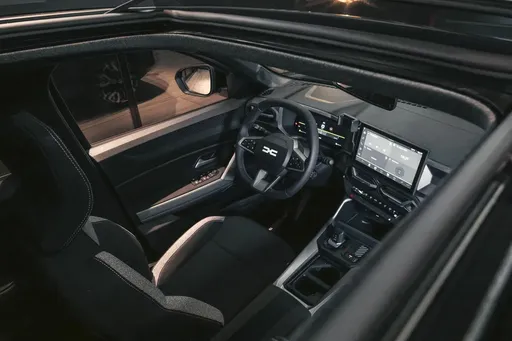 @ media.renault.at
@ media.renault.at
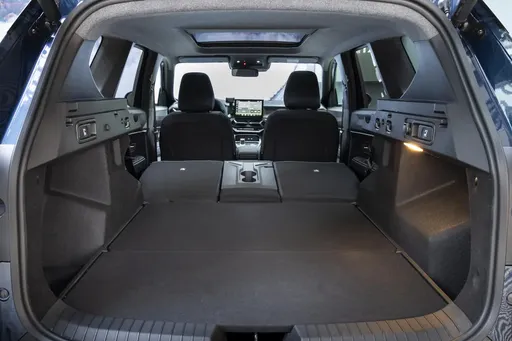 @ media.renault.at
@ media.renault.at

|

|
|
|
|
Costs and Consumption |
|
|---|---|
|
Price
37600 - 64300 £
|
Price
20600 - 26600 £
|
|
Consumption L/100km
-
|
Consumption L/100km
4.7 - 7.1 L
|
|
Consumption kWh/100km
13.9 - 15.1 kWh
|
Consumption kWh/100km
-
|
|
Electric Range
429 - 614 km
|
Electric Range
-
|
|
Battery Capacity
53 - 84 kWh
|
Battery Capacity
-
|
|
co2
0 g/km
|
co2
106 - 137 g/km
|
|
Fuel tank capacity
-
|
Fuel tank capacity
50 - 55 L
|
Dimensions and Body |
|
|---|---|
|
Body Type
Hatchback
|
Body Type
SUV
|
|
Seats
5
|
Seats
5
|
|
Doors
4
|
Doors
5
|
|
Curb weight
1850 - 2095 kg
|
Curb weight
1425 - 1547 kg
|
|
Trunk capacity
401 L
|
Trunk capacity
510 - 667 L
|
|
Length
4855 - 4935 mm
|
Length
4570 mm
|
|
Width
1880 - 1940 mm
|
Width
1813 mm
|
|
Height
1495 mm
|
Height
1705 mm
|
|
Max trunk capacity
-
|
Max trunk capacity
1813 - 1937 L
|
|
Payload
425 - 430 kg
|
Payload
383 - 467 kg
|
Engine and Performance |
|
|---|---|
|
Engine Type
Electric
|
Engine Type
Petrol MHEV, Full Hybrid, LPG
|
|
Transmission
Automatic
|
Transmission
Manuel, Automatic
|
|
Transmission Detail
Reduction Gearbox
|
Transmission Detail
Manual Gearbox, Automated Manual
|
|
Drive Type
Rear-Wheel Drive, All-Wheel Drive
|
Drive Type
All-Wheel Drive, Front-Wheel Drive
|
|
Power HP
151 - 650 HP
|
Power HP
130 - 155 HP
|
|
Acceleration 0-100km/h
3.2 - 8.8 s
|
Acceleration 0-100km/h
9.7 - 11.2 s
|
|
Max Speed
185 - 257 km/h
|
Max Speed
180 km/h
|
|
Torque
350 - 770 Nm
|
Torque
230 Nm
|
|
Number of Cylinders
-
|
Number of Cylinders
3 - 4
|
|
Power kW
111 - 478 kW
|
Power kW
96 - 115 kW
|
|
Engine capacity
-
|
Engine capacity
1199 - 1799 cm3
|
General |
|
|---|---|
|
Model Year
2022 - 2025
|
Model Year
2025
|
|
CO2 Efficiency Class
A
|
CO2 Efficiency Class
E, D, C
|
|
Brand
Hyundai
|
Brand
Dacia
|
What drive types are available for the Hyundai IONIQ 6?
Available configurations include Rear-Wheel Drive or All-Wheel Drive.
The prices and data displayed are estimates based on German list prices and may vary by country. This information is not legally binding.
